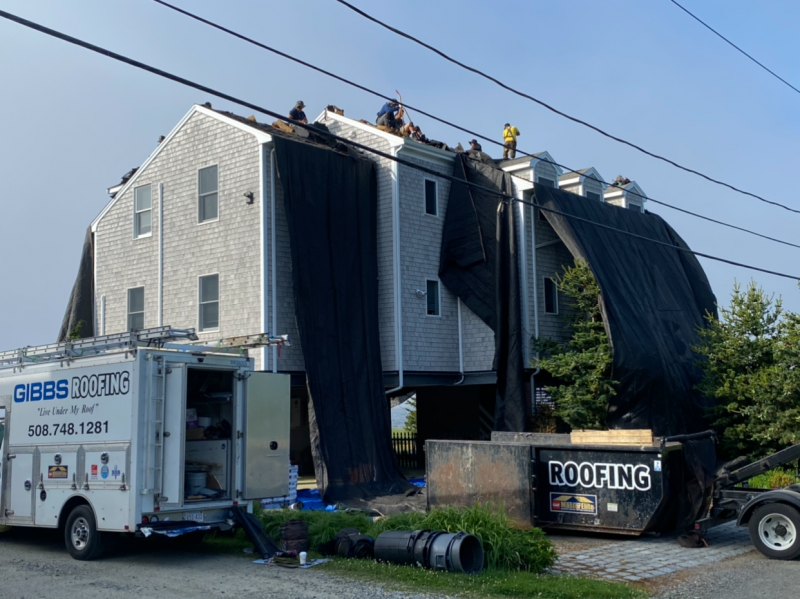Covid makes homeowners reconsider, redesign living spaces
For some, the coronavirus shutdown has felt like a staring contest with the same set of walls at home.
To fix up those walls, Tri-Town residents are calling on local contractors and architects. But these professionals now have an increase in demand and a variety of pandemic-related changes in how they work.
For some, it means waiting an hour and a half at the dump to unload waste from jobs, or a five-day delay to get a building permit.
For others, it means venturing into consulting with schools and businesses on how to repurpose common areas for social distancing.
When Dan Gibbs, owner of Gibbs Roofing, was asked why he thinks people are getting their roofs done in the midst of the pandemic, the answer was quite simple: “People spent more time looking at their houses,” being at home, he said.
Although Gibbs has to do estimates from outside the house and talk with homeowners at their front door, business has been steady.
Factory closure in and out of state have backed up work in many industries, but Gibbs said he usually orders his shingles for the warmer weather during the wintertime. Even then, there wasn’t a huge slowdown in the shingles industry.
“We were ahead of the game,” Gibbs said.
But a project like a red cedar shingled roof in Marion was put on hold because those have to be special ordered.
Instead, jobs have been put on hold for his company because of dump runs.
It used to be that waiting 15 to 20 minutes was a bad day at the dump. Now Gibbs and his crew have waited an hour and a half on a good day, which causes scheduling issues
“If I don't have an empty dumpster, I’m not working the next day,” on that house, he said.
Scheduling has been an issue for Fisher and Rocha construction of Mattapoisett too, but for a different reason: permits.
Bruce E. Rocha Sr., manager at Fisher and Rocha, said that any work with local building departments essentially came to a halt during the shutdown.
“It’s been very difficult,” said Rocha.
What was normally a same-day permit approval is now being drawn out days over email communications.
Coronavirus is a more complex problem than other economic downturns the company has been through in the 57 years he has been in business.
An economic downturn usually comes from a general market downturn. In the case of covid, it is an external “problem that caused the economic problem.”
Though home improvement jobs have slowed, Rocha said the company is going steady on commercial work. Dealing with social distancing is easy for workers because “seldom do we work less than six feet apart,” Rocha said.
For Saltonstall Architects, it’s been much more critical to figure out how to space people six feet apart, as that task now makes up much of its work.
The firm is consulting with institutions on virus space planning to repurpose pre-existing areas to help with social distancing issues.
Owner Will Saltonstall said that it’s not creating new buildings to accommodate for the virus, but “how to fit the pieces within the walls.”
In a place like a private school, this might mean having three to four sessions for dinner rather than one or two to protect students.
While the firm can’t tell schools to change their programming, it suggests flexibility in how they use up space.
“We’re seeing institutions struggle with spacing,” Saltonstall said, but schools need to be flexible even if it isn’t easy.
In a new school the firm is working on, the architects are now more cognizant of thinking how spaces could be used for different purposes if a pandemic were to occur again.
In the residential sector, Saltonstall said the office’s phone has been ringing off the hook since June.
“It’s been amazing how many people are improving their properties,” he said.
Like Gibbs, Saltonstall said residents are spending more time at home and are thinking of its uses.
He said that this will be a trend because more people are working at home and are conscious of how much their living space affects their work life.
With businesses realizing that employees can work from home, there will also be less of a need for office space.
This may bring changes in the future, Saltonstall said, because an office building has little reuse value to it. If it can’t be repurposed for another use, it would have to be knocked down which would create a lot of waste, he said














